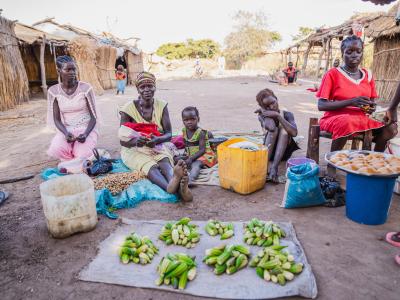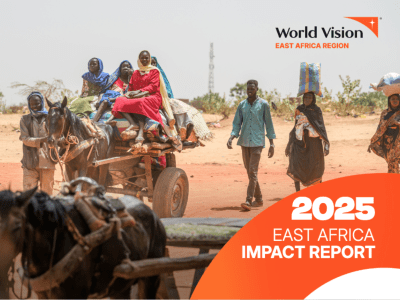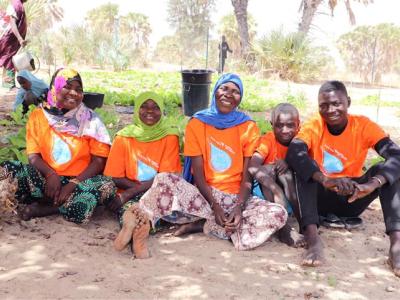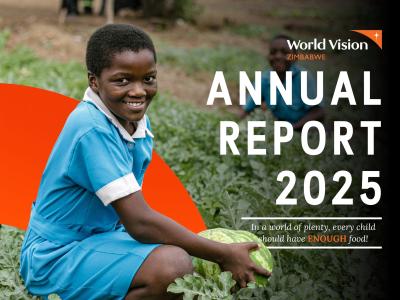article / February 16, 2026
World Vision Ghana Calls for Stronger National Commitment as Ghana Marks World NTD Day 2026
World Vision Ghana joined the Ghana Health Service and partners at Social Welfare Park to mark World Neglected Tropical Diseases (NTD) Day 2026, reaffirming national commitment to eliminating neglected tropical diseases through collaboration, stronger financing, and community-focused health interventions.
article / February 26, 2026
‘’ L’espoir renait pour Fatim grâce au programme d’aide alimentaire du GERF’’ (Global Emergency Rapid Fund)
Fatim et toute sa famille ont fui les violences armées à Torou dans le cercle de Bankass. Installée à Koro, avec ses six enfants dont 4 garçons et deux filles, doit s’adapter au rythme de la ville. A Koro, elle pile le mil, fait la lessive, vend du gravier pour subvenir aux besoins de sa famille. Son mari qui a 65 souffre d’hypertension et est dans une autre ville pour ses soins médicaux. Son premier garçon est actuellement sur un site d’orpaillage artisanal.
opinion / February 26, 2026
With every cut to aid and failure to invest in resilience, the future of South Sudan’s children hangs in the balance
Drawing on first‑hand experience from one of the world’s most fragile contexts, Paul Kinuthia, Senior Director, Food, Cash & Markets, Disaster Management, argues that repeatedly cutting food, health and protection services traps communities in endless crisis.
He makes the case that narrowing aid to short‑term survival is a false economy that drives higher costs, deeper instability and repeated emergencies. The solution, the author provides, is urgent investment in resilience alongside life‑saving aid. This investment should be seen as a credible way to protect children and reduce the need over time.
article / February 23, 2026
World Vision Ghana Hosts West Africa National Directors’ Retreat
World Vision Ghana hosts the annual West Africa National Directors’ Retreat in Accra, bringing regional leaders together for strategic alignment, reflection, and planning to enhance impact for vulnerable children and communities.
opinion / February 27, 2026
Are we serious about children’s rights in the digital world?
As artificial intelligence reshapes platforms at extraordinary speed, are children’s rights keeping pace with the rapid shifts in their own digital world?
publication / February 23, 2026
World Vision East Africa Impact Report 2025
Despite escalating conflict, climate shocks, economic instability and widespread displacement, we reached over 26 million people, including 16.4 million children
article / February 24, 2026
DR Congo: In Malambwe, the Reconstruction of EP Muyala by World Vision Restores Hope for Over 700 Children
In Malambwe, Haut-Katanga Province, the reconstruction of Muyala Primary School by World Vision DRC has provided more than 700 children with a safe and inclusive learning environment. With new classrooms, improved sanitation facilities and access to clean water through six boreholes, the initiative marks a significant step towards better health, child protection and sustainable community development.
opinion / February 23, 2026
What 2026 Could Mean for Children’s Future
Five key risks likely to shape children’s wellbeing in 2026 and the urgency and bold action needed to change the current trajectory.
article / February 26, 2026
WORLD VISION NIGER – 2025 EXECUTIVE SUMMARY AND 2026 PRIORITIES
A comprehensive overview of World Vision Niger’s 2025 results and 2026 priorities, highlighting key impacts in health, nutrition, WASH, education, resilience, advocacy, humanitarian response, and the launch of the new 2026–2030 national strategy.
publication / February 17, 2026
World Vision Zimbabwe 2025 Annual Report
In this 2025 Annual Report, discover powerful stories that highlight World Vision Zimbabwe's (WVZ) transformative impact on the lives of the most vulnerable children. Driven by an unshakable dedication to championing the well-being of girls and boys in need, we are strategically refocusing and amplifying our efforts to tackle extreme vulnerability head-on.







